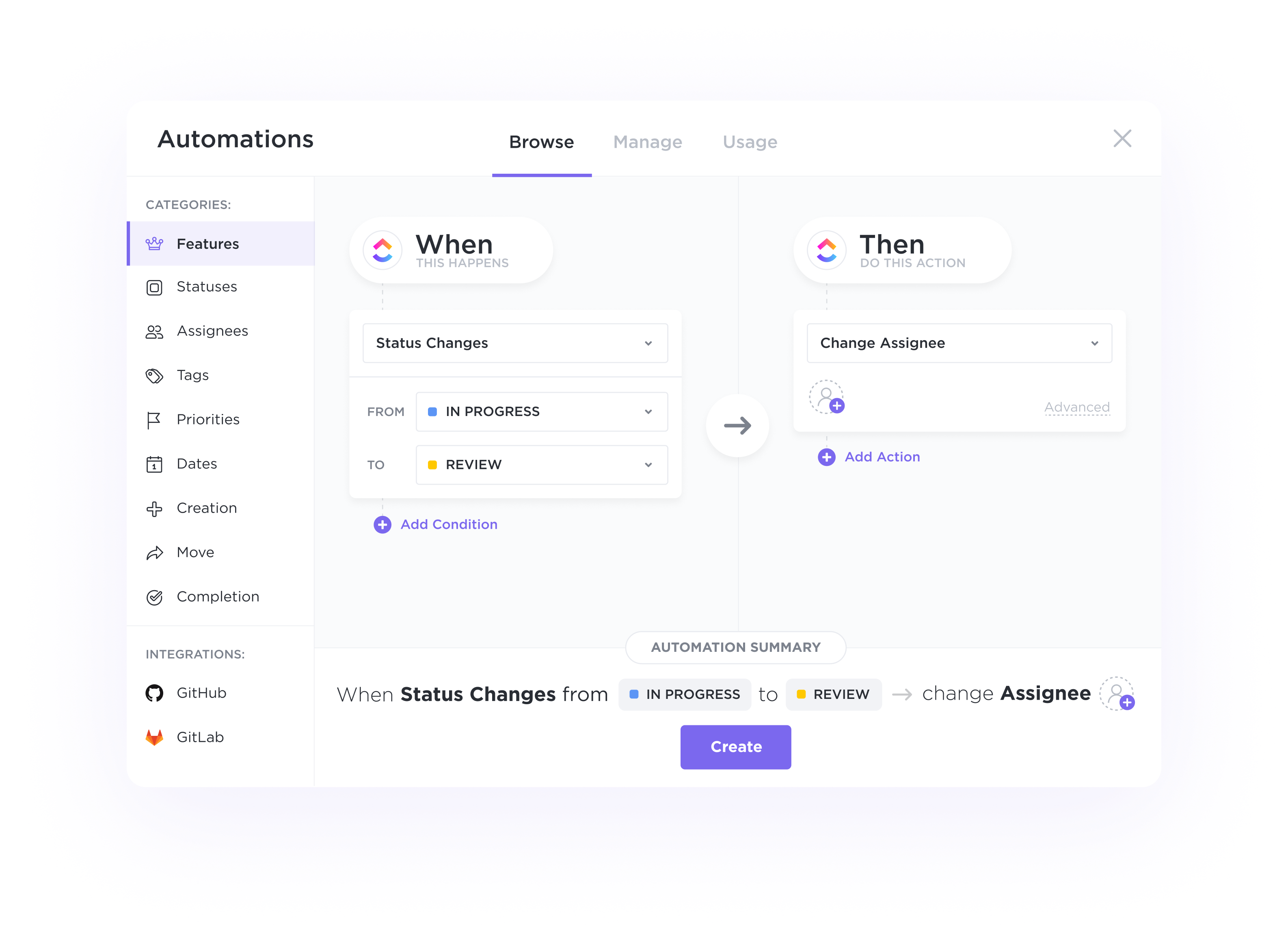Email Management
Centralize customer outreach.
Eliminate silos and fast-track communication by integrating your emails with ClickUp. Collaborate on deals, send project updates to clients, and onboard customers with a single email hub.

Gantt Charts
Revolutionize your government organization's workflow with ClickUp's customizable CRM software. Streamline communication, increase efficiency, and centralize data to enhance customer relationships like never before. Take advantage of ClickUp to create a CRM system specifically designed for government agencies and experience a seamless and organized approach to managing interactions with citizens.
Free forever. No credit card.
Email Management
Eliminate silos and fast-track communication by integrating your emails with ClickUp. Collaborate on deals, send project updates to clients, and onboard customers with a single email hub.

Automations
Automatically assign tasks for each stage of your pipeline, trigger status updates based on activity, and switch priorities to alert your team on where to focus next.

A CRM system can centralize all citizen interactions and requests, including inquiries, complaints, and service requests. This helps government agencies track and respond to citizen needs more efficiently, ensuring no request falls through the cracks.
By streamlining processes and automating workflows, a CRM can help government agencies improve service delivery and response times to citizen inquiries or requests. Automation can route requests to the appropriate departments or individuals, ensuring timely resolution.
CRMs designed for government use typically have robust security features to protect sensitive citizen data and ensure compliance with data privacy regulations. This helps in maintaining the confidentiality and integrity of citizen information.
A CRM can track interactions with various stakeholders, such as other government agencies, partners, or vendors. This helps in managing relationships effectively, coordinating efforts on projects, and ensuring transparency in government operations.
Government agencies can use CRMs to track key performance indicators, monitor service delivery metrics, and generate reports for decision-making and accountability purposes. This data-driven approach helps in evaluating the effectiveness of government programs and services.
CRM software helps government agencies by centralizing constituent data, automating processes, enabling better communication between departments, and providing data-driven insights for improved decision-making. This streamlines operations, enhances efficiency, and allows for more effective public service delivery.
Government agencies should look for CRM software that offers robust security measures to protect sensitive data, scalability to accommodate large volumes of information, customization options to align with specific agency needs, integration capabilities with existing systems, compliance with government regulations, and robust reporting and analytics for data-driven decision-making.
CRM software assists government agencies by centralizing citizen interactions and requests, providing a unified view of citizen data, streamlining processes, improving response times, and enhancing overall service delivery and citizen satisfaction.